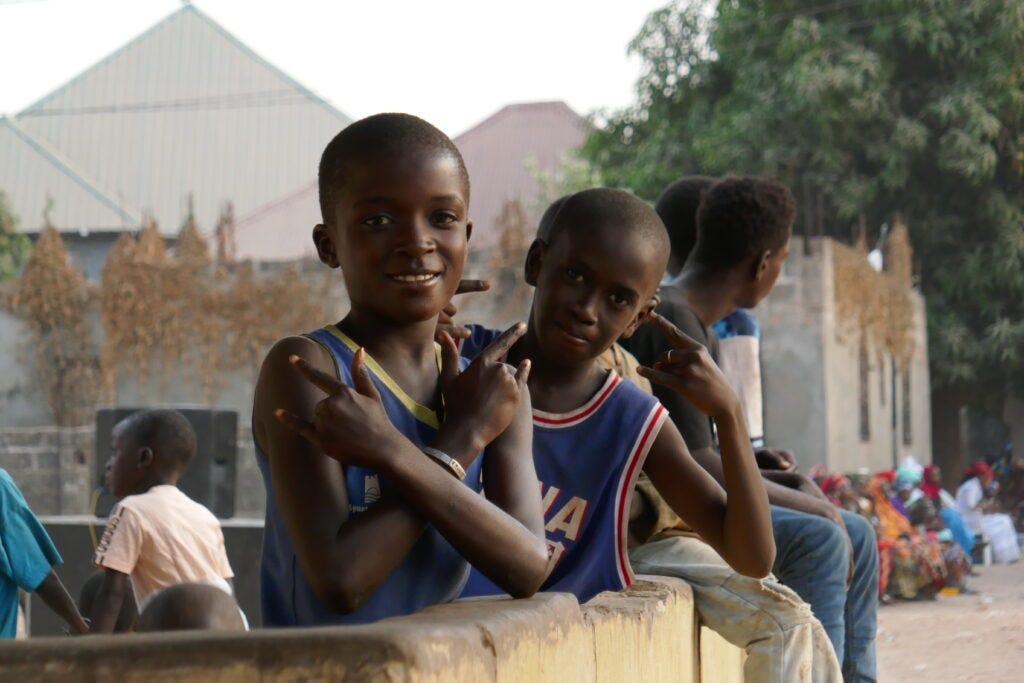Toubab
“This is no racism. You are white so just give them money.”
White man is ‘toubab’. When walking across the village, kids run after me in a big swarm crying: “Toubab, toubab!” It is funny for a moment, but soon becomes irritating as the show repeats in every village and on every street. I ask acquaintances whether the term is derogatory. It is not, but a lot depends on context: is the term ‘black’ derogatory in Europe?
Indeed, after a while, I grasp the context and that is not a pleasant discovery. I start noticing that the same kids refer to black adults respectfully: “Uncle!” However, this respect is not applicable to the whites.
Sometimes adults behave the same way: a ticket seller in the minibus calls me across four rows of seats: “You, toubab, pay!” However, that is rare. In most cases, adults are friendly and well-behaved. A ferry captain in Lamin Kotu (that title, ‘captain’ means a boy holding the handle of the Yamaha engine on a rusted boat), addresses me, asking for money: “Your fare, strong man!” He does not say ‘please’ (that word is very uncommon here) and yet I sense a friendly respect in the amusing phrase he used.
One evening, drinking attaya with Lamin, a well-travelled Gambian, I asked why children greet me with the color of my skin, instead of saying simply: ‘hello’. He answered with touching simplicity: “This is no racism, because we in Africa do not know of racism. They just call out ‘toubab’ because you are white so that you give them money.”
Sigh… everything as its own place in the universe, and I have mine – I thought sadly, walking back across the village. And then, child’s words came clear from behind:
“I love you, toubab.”
Gambia, 2024




In Sierra Leone, the Mende term for white person is Poom-whee, which means person from London. Generally just kids say it. The Wolofs do have a derogatory term for white people - Nop-bu-honk, meaning red ears. An old word from colonial times alluding to white peoples' sunburned ears. I spoke pretty good Wolof then, and I would hear commercants calling me that, so I would call them Nop-ku Nool, meaning black ears. Everyone would start laughing and things changed. I lived in Dankunku, The Gambia, for about 6 months, in the home of the Paramount Chief. I was called his first son, Lamine Mboge. He was a wonderful, kind, wise man, who had seen some things.
We have a tenant on our farm from The Gambia. He calls my partner the “white man.” Everything is “white man prices” or “the white man way of doing things”. Your story almost puts his way of thinking into context for me. It not necessarily derogatory but just a matter of fact.